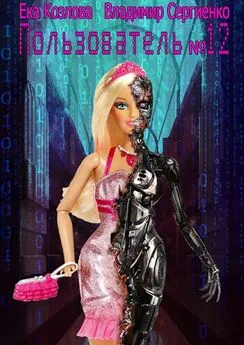Пользователь - o 3b3e7475144cf77c
- Название:o 3b3e7475144cf77c
- Автор:
- Жанр:
- Издательство:неизвестно
- Год:неизвестен
- ISBN:нет данных
- Рейтинг:
- Избранное:Добавить в избранное
-
Отзывы:
-
Ваша оценка:
Пользователь - o 3b3e7475144cf77c краткое содержание
o 3b3e7475144cf77c - читать онлайн бесплатно полную версию (весь текст целиком)
Интервал:
Закладка:
to understand the minds of other men, both foes and friends, and what greeds, fears, hates,
jealousies will move them to action. He must understand the mass mind, the ideals or
delusions which sway it; he must be enough of a fanatic to talk their language, though not
enough to be controlled by it. He must believe in nothing but his own destiny, the glorified
image of himself on the screen of history; whole races of mankind made over in his own image
and according to his will. To accomplish that purpose he must be liar, thief, and murderer
upon a world-wide scale; he must be ready without hesitation to commit every crime his own
interest commands, whether upon individuals or nations. He must pave the highway for his
legions with the bones of his enemies, he must float his battleships upon oceans of human
blood, he must compose his songs of glory out of the groans and curses of mankind.
The singular advantage enjoyed by Adolf Hitler was that his own people believed what he
said, while other peoples couldn't and wouldn't. The attitude of the outside world to him was
that of the farmer who stared at a giraffe in the circus and exclaimed: "There ain't no sich
animal!" The more Adolf told the world what he was and what he meant to do, the more the
world smiled incredulously. There were men like that in every lunatic asylum; the type was so
familiar that any psychiatrist could diagnose it from a single paragraph of a speech or a single
page of a book. Sensible men said: "Nut!" and went on about their affairs, leaving Adolf to
conquer the world. Here and there a man of social insight cried out warnings of what was
going on; but these, too, were a well-known type and the psychiatrists had names for them.
Adolf Hitler got the mastery of the National Socialist Party because of his combination of
qualities; because he was the most fanatical, the most determined, the most tireless, and at the
same time the shrewdest, the most unscrupulous, the most deadly. From the beginning men
had revolted against his authority, and while he was weak he had wheedled and cajoled them
and when he became strong he had crushed them. There had been split after split in his
movement, and he had gone after the leaders of the factions without ruth; even before he had
got the authority of government in his hands, his fanatical Stormtroopers had been beating and
sometimes murdering the opponents of this new dark religion of Blut und Boden, blood and
soil. Work with Adolf Hitler and you would rise to power in the world; oppose him, and your
brains would be spattered on the pavement, or you would be shot in the back and left unburied
in a dark wood.
Hermann Goring, aviator and army officer, man of wealth, of luxurious tastes and insatiable
vanities, hated and despised Joseph Goebbels, the blabbing journalist, the club-footed little
dwarf with the venom-spitting tongue; and these sentiments were cordially reciprocated. Jupp
would have thrown vitriol into Hermann's face, Hermann would have shot Jupp on sight—if
either had dared. But the Führer needed Hermann as a master executive and Jupp as a master
propagandist, and he put them into harness and drove them as a team. The same thing was
true of hundreds of men in that party of madness and hate: World War victims, depression
victims, psychopaths, drug addicts, perverts, criminals—they all needed Adolf a little more than
Adolf needed them, and he welded them into something more powerful than themselves.
Hardly one who wasn't sure that he was a greater man than Adolf, and better fitted to lead the
party; in the old days many had patronized him, and in their hearts they still did so; but he
had won out over them, because of the combination of qualities. He was the one who had
persuaded the masses to trust him, and he was the one who could lead the N.S.D.A.P. and all its
members and officials upon the road to conquest.
II
Adolf Hitler had watched Lenin, he now was watching Stalin and Mussolini, and had
learned from them all. In June of the year 1924, when Lanny Budd had been in Rome, Benito
Mussolini had been Premier of Italy for more than twenty months, but the Socialists were still
publishing papers with several times as many readers as Mussolini's papers, and there was
still freedom of speech in the Italian parliament and elsewhere; there was still an opposition
party, there were labor unions and co-operatives and other means of resistance to the will of the
Fascists. It had taken the murderer of Matteotti another year and more to accomplish his
purpose of crushing opposition and making himself master of the Italian nation.
But Adolf's time-table was different from that. Adolf had a job to do in the outside world, and
had no idea of dawdling for three years before beginning it. He knew how to wait, but would
never wait an hour longer than necessary, and would be his own judge of the timing; he
would startle the world, and even his own followers, by the suddenness and speed of his
moves.
First, always first, the psychological preparation. Was he going to wipe out the rights of
German labor, to destroy a movement which the workers had been patiently building for
nearly a century? Obviously, then, the first step was to come to labor with outstretched hands,
to enfold it in a brotherly clasp while it was stabbed in the back; to set it upon a throne where it
could be safely and surely riddled with machine gun bullets.
Europe's labor day was the First of May, and everywhere over the continent the workers
paraded, they held enormous meetings, picnics and sports, they sang songs and listened to
speeches from their leaders, they heartened and inspired themselves for the three hundred
and sixty-four hard days. So now, several weeks in advance, it was announced that the Hitler
government was going to take over the First of May and make it the "Day of National Labor."
This was a government of "true Socialism"; it was the friend of labor, it was labor, and no
longer could there be a class struggle or any conflict of interest. The revolution having been
accomplished, the workers would celebrate their conquest and the new and splendid future
which lay before them. All these golden, glowing words —and all the power of press and radio to
carry the message to every corner of the Fatherland. Also, of course, the power of the police and
the private Nazi armies to terrify and crush anyone who might try to voice any other idea.
"Oh, Lanny, you should come to see it!" wrote Heinrich Jung, ecstatically. "It will be
something the like of which has not been seen in the world before. All our youth forces will
assemble in the Lustgarten in the morning and President Hindenburg himself will address us.
In the afternoon there will be costume parades of every craft and trade, even every great
factory in Germany. All will gather in the Tempelhof Airfield, and the decorations will exceed
anything you could imagine. The rich are paying for them by buying tickets so as to sit near
the Führer. Of course He will speak, and afterwards there will be fireworks like a battle—three
hundred meters of silver rain! I beg you and your wife to come as my guests—you will always
be glad that you witnessed these historic scenes. . . . P.S. I am sending you some literature
about our wonderful new labor program. You cannot have any doubts after this."
Lanny wrote, acknowledging the letter and expressing his regrets. It cost nothing to keep in
touch with this ardent young official, and the literature he sent might some day be useful to Rick.
Lanny was quite sure that he wouldn't care to enter Germany so long as Adolf Hitler remained
its Chancellor.
III
The celebration came off, with all the splendor which Heinrich had promised. Everything was
the biggest and most elaborate ever known, and even the hardboiled foreign correspondents
were awestricken; they sent out word that something new was being born into the world. On
the enormous airfield three hundred thousand persons had assembled by noon, to sit on the
ground and await ceremonies which did not begin until eight in the evening. By that time
there were a million or a million and a half in the crowd, believed to be the greatest number
ever gathered in one place. Hitler and Hindenburg drove side by side, the first time that had
happened. They passed along Friedrichstrasse, packed to the curb with shouting masses, and
hung with streamers reading: "For German Socialism," and "Honor the Worker." In front of
the speaker's platform stood the new Chancellor, looking over a vast sea of faces. He stood under
the spotlight, giving the Nazi salute over and over, and when at last he spoke, the amplifiers
carried his voice to every part of the airfield, and wireless and cables carried it over the world.
The new Chancellor's message was that "the German people must learn to know one another
again." The divisions within Germany had been invented "by human madness," and could be
remedied "by human wisdom." Hitler ordained that from now on the First of May should be a
day of universal giving of hands, and that its motto was to be: "Honor work and have respect
for the worker." He told the Germans what they wanted most of all to hear: "You are not a
second-rate nation, but are strong if you wish to be strong." He became devout, and prayed:
"O Lord, help Thou our fight for liberty!"
Nothing could have been more eloquent, nothing nobler. Did Adi wink to his journalist and
say: "Well, Juppchen, we got away with it," or some German equivalent for that slang? At any
rate, on the following morning the labor unions of Germany, representing four million workers
and having annual incomes of nearly two hundred million marks, were wiped out at one single
stroke. The agents of the job were so-called "action committees" of the Shop-Cell
Organization, the Nazi group which had carried on their propaganda in the unions. Armed
gangs appeared at the headquarters of all the unions, arrested officials and threw them into
concentration camps. Their funds were confiscated, their newspapers suppressed, their editors
jailed, their banks closed; and there was no resistance. The Socialists had insisted upon
waiting until the Nazis did something "illegal"; and here it was.
"What can we do?" wrote Freddi to Lanny, in an unsigned letter written on a typewriter—
for such a letter might well have cost him his life. "Our friends hold little meetings in their
homes, but they have no arms, and the rank and file are demoralized by the cowardice of their
leaders. The rumor is that the co-operatives are to be confiscated also. There is to be a new
organization called the 'German Labor Front,' to be directed by Robert Ley, the drunken
braggart who ordered these raids. I suppose the papers in Paris will have published his
manifesto, in which he says: 'No, workers, your institutions are sacred and inviolable to us
National Socialists.' Can anyone imagine such hypocrisy? Have words lost all meaning?
"Do not answer this letter and write us nothing but harmless things, for our mail is pretty
certain to be watched. We have to ask our relatives abroad not to attend any political meetings
for the present. The reason for this is clear."
Читать дальшеИнтервал:
Закладка:




